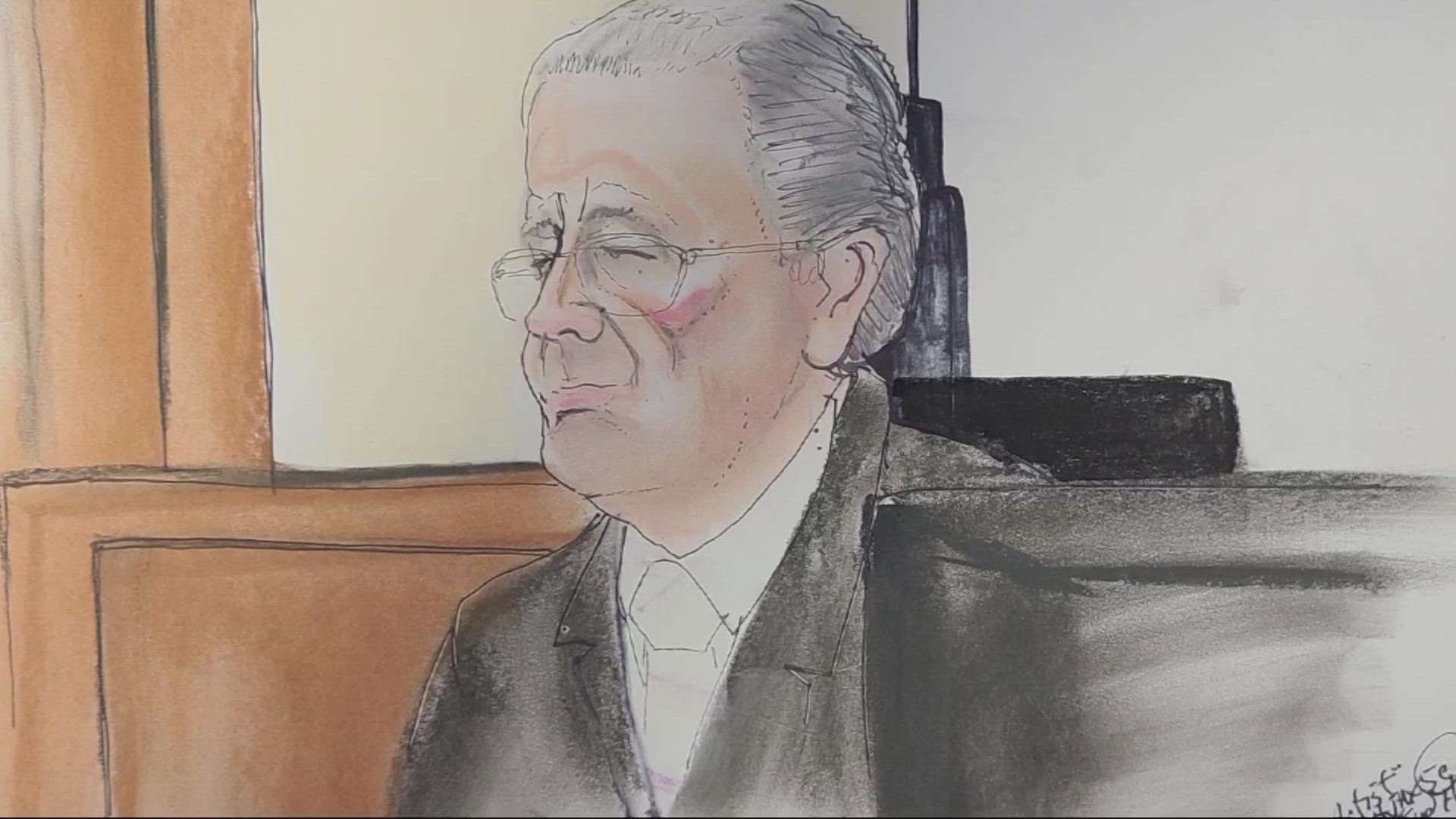JACKSONVILLE, Fla. — A parade of current and former city officials continued Tuesday in the federal criminal case against two ousted JEA executives.
Jacksonville City Council Vice President Ron Salem testified about an investigation he initiated into the disastrous and ultimately aborted effort to sell JEA.
Salem’s testimony marked the start of a second week of pretrial hearings in the case against JEA’s former CEO Aaron Zhan and former CFO Ryan Wannemacher.
Both have pleaded not guilty to conspiracy and wire fraud charges in what prosecutors say was a plan to skim millions in profits from the planned sale of the city-owned utility.
Councilmember Salem testified only briefly, but is one of dozens of former and current top city officials and JEA executives who helped federal prosecutors build their case.
Those called Tuesday included former JEA Vice President and Chief Customer Officer Kerri Stewart, former JEA Board Chair Alan Howard and former JEA board member Andy Allen. Previous witnesses include JEA’s former chief legal officer Lynne Rhode, former JEA board member Kelly Flanagan and FPL executive Pam Rauch.
Tuesday’s first witness, Stewart, testified about the “performance unit plan,” or PUP, at the center of the government’s case. That plan, crafted as a long-term incentive program for employees, could have generated hundreds of millions in profit for senior executives in the event of the planned sale of JEA, according to prosecutors.
The effort to sell the utility was abandoned in late 2019.
Stewart testified about the intense media attention on JEA amid the burgeoning scandal in late 2019, including an interview request from Jacksonville Daily Record writer Mike Mendenhall, who asked for a sit-down interview with CFO Ryan Wannemacher.
Stewart said Wannemacher declined.
“Ryan wasn’t feeling up to it, so I did the interview,” she told Assistant U.S. Attorney Tysen Duva.
Stewart said that Mendenhall’s main question was why there wasn’t an established cap on profits that could be generated by the PUP. When she put that question to Wannemacher ahead of the interview, Stewart testified, “He said there was no cap because: Why would there need to be a cap? If a company was going to perform well, why would you limit the amount of value that it would bring to a performance unit plan?”
Stewart testified she did not anticipate that the PUP would be tied to a sale of JEA, potentially generating profits in the hundreds of millions for utility executives. She said Wannemacher was reluctant to address those concerns when the Council Auditor’s Office raised them in a 22-question email.
“I asked Ryan why he wouldn’t -- that it was very important that he answer the questions.”
“We were getting a lot of heat from City Hall about these unanswered questions,” she continued. “He said the program was canceled, so the question was moot, so we didn’t need to answer the questions.”
Prosecutors say PUP unit payouts to senior JEA executives could have exceeded $300 million. (Testimony in hearings last week indicated Aaron Zhan told a professional colleague he would personally clear $40 million, and executive staffers would pocket $10 million apiece.)
The pretrial hearings were requested by Zhan and Wannemacher’s defense attorneys. They contend the government's case was “tainted” by the players' exposure to constitutionally protected statements both men were compelled to give city investigators. The so-called “Kastigar” proceedings require prosecutors to demonstrate that their case is based on information gleaned from independent sources, not the defendants' protected testimony.
A significant amount of court time Tuesday was devoted to argument about whether defense attorneys’ questions addressed that narrow issue, or were an attempt to effectively depose government witnesses.
“The government’s job is to show what information the government developed and how and what was presented to the grand jury,” Duva told Magistrate Judge Monte Richardson. “This is not a deposition. This is not the trial.”
Andy Allen, a JEA board member who resigned in late 2019 after just a few months, testified he quit because the controversy surrounding the sale and PUP plan “wasn’t good for business.” (Allen is also President at Corner Lot Development.)
Allen testified that in conversations with Zahn before the PUP plan was approved, he thought it would cost $3- $4 million – a figure Allen memorialized in handwritten notes on his July 2019 board agenda. Duva asked if Allen had approved the PUP plan “if you had thought that payouts from the long-term incentive plan and the PUP could be up to $345 million -- would you have voted for it?”
“No,” Allen replied.
Prosecutors got a similar response from former JEA Board Chair Alan Howard, who was appointed by Jacksonville Mayor Lenny Curry at the behest of former Board Chair Tom Petway. (Howard testified that Petway, “a longtime client of me and my law firm,” called him about serving on the board, saying, “Let me put the mayor on.”)
Not long after Howard’s appointment, in late 2017, Petway floated the issue of JEA privatization.
Petway’s suggestion was followed by a leadership shakeup, which Howard testified was pressed by Mayor Curry. In late March 2018, Howard said, the Mayor’s Office reached out to discuss the future of then-CEO Paul McElroy.
“The indication I got from the Mayor’s Office is they would prefer [McElroy] retire,” Howard testified.
On April 6, Howard delivered the news to McElroy, who was quickly succeeded by Zhan.
Duva asked Howard if he’d have approved the PUP plan knowing that “If JEA is sold, this is capable of getting $300 million, $400 million, $500 million in incentives?”
“I don’t believe that’s something I would be in favor of,” Howard said.
Howard greeted Wannemacher and Zahn warmly before leaving court Tuesday. He’s expected to resume testifying Wednesday at 9 a.m.
The hearings are expected to last until at least Thursday. The trial gets underway in October.

